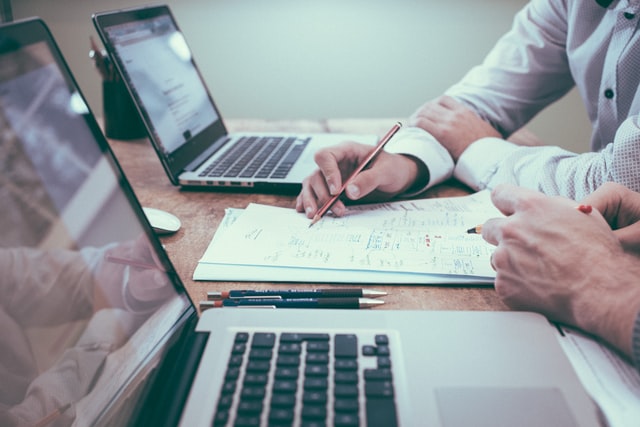It’s no secret that buying a home is a huge financial commitment. The costs of homeownership – from the down payment to monthly mortgage payments – can be daunting. Many people decide to buy a home without giving much thought to their financial situation. This can lead to disaster down the road. In this blog post, we will discuss why it’s important to have a financial plan before buying real estate. We’ll also provide some tips for creating a solid financial plan!
1. Don’t be hasty – buying a home is a big decision that shouldn’t be taken lightly
If you’re not sure about your financial situation, it’s best to wait until you are!
Homeownership is a huge financial responsibility. From the down payment to monthly mortgage payments, there are a lot of costs associated with owning a home. If you’re not careful, this can lead to financial disaster. That’s why it’s important to take the time to create a solid financial plan before buying real estate.

2. Have a solid financial plan in place to make sure you can afford the mortgage payments and other associated costs
When you have a solid financial plan in place, you can be sure that you can afford the mortgage payments and other associated costs. This will help avoid any nasty surprises down the road.
What kind of surprises could you face? Let’s take a look:
-You may not be able to afford the monthly mortgage payments
-The cost of homeownership could exceed your budget
-Your home could lose value over time, leading to negative equity
These are just a few examples of what could go wrong if you don’t have a financial plan in place. That’s why it’s so important to take the time to create a solid plan before buying real estate.
If you’re not sure where to start, there are plenty of resources available to help you create a financial plan. You can talk to a financial advisor, read books or articles on the subject, or even use online tools. The most important thing is that you take the time to do it right.
3. Factor in all of your expenses, including property taxes, insurance, and repairs/updates

When creating a financial plan, it’s important to factor in all of your expenses. This includes property taxes, insurance, and repairs/updates. If you don’t include these costs, you could end up struggling financially down the road.
For example, let’s say you buy a home for $200,000. Your monthly mortgage payments will be around $850. But you also need to factor in property taxes, insurance, and repairs/updates. If the average cost of property taxes in your area is $200 per month, insurance costs $50 per month, and repairs/updates cost $100 per month, your total monthly expenses will be around $1,200. This means that your monthly mortgage payments will only be a small part of your overall expenses.
It’s important to remember this when creating your financial plan. Be sure to include all of the associated costs of homeownership, not just the mortgage payments. This way, you can be sure that you can afford to buy a home!
4. Make sure you’re comfortable with your monthly budget even after factoring in homeownership costs
Once you’ve created a financial plan and included all of the associated costs of homeownership, it’s important to make sure you’re comfortable with your monthly budget. This means that you should have enough money left over each month to cover your other expenses and save for the future.
If you’re not comfortable with your monthly budget after factoring in homeownership costs, it’s best to wait until you’re in a better financial situation. There’s no shame in renting for a few more years until you’re ready to buy a home.
5. Get pre-approved for a mortgage so you know what kind of homes are within your price range
Getting pre-approved for a mortgage is a good idea for a few reasons.
First, it will give you an idea of what kind of homes are within your price range. This is important because it will help you focus your search on homes that you can actually afford.
Second, it will give you negotiating power when dealing with sellers. If a seller knows that you’re pre-approved for a mortgage, they’ll be more likely to accept your offer.
Third, it will help you close on a home more quickly. If you’re pre-approved for a mortgage, the lender has already done a lot of the work to approve you for a loan. This can speed up the process of closing on a home.
6. Stay mindful of interest rates and how they could impact your monthly payments down the road
Interest rates are important to keep in mind when creating your financial plan. They can have a big impact on your monthly payments, and they can go up or down over time.
For example, let’s say you buy a home for $200,000 and your mortgage rate is fixed at 4%. Your monthly mortgage payments will be around $850. But let’s say the interest rates go up to 6%. Your monthly mortgage payments will now be around $1,200. This is a big increase, and it could have a major impact on your budget.
Therefore, it’s important to stay mindful of interest rates and how they could impact your monthly payments. This way, you can be prepared for any changes that might occur.
So, before you buy that house or investment property, make sure you have a solid financial plan in place. This means knowing what your monthly expenses will be, how much debt you can afford to take on, and having a cushion for unexpected costs. Putting all of this together may seem like a lot of work, but it’s worth it in the long run. Stay tuned for more updates and tips from our blog!


